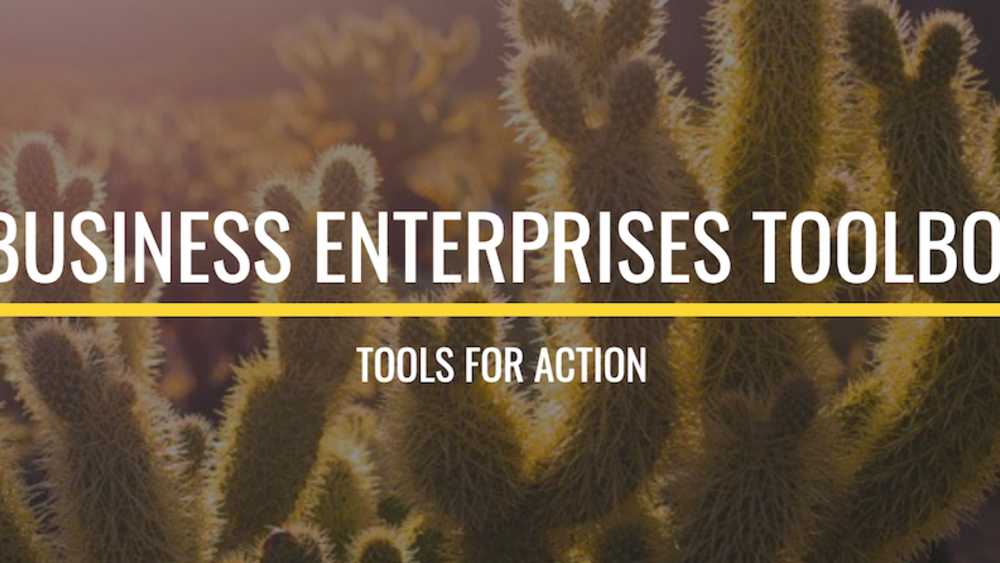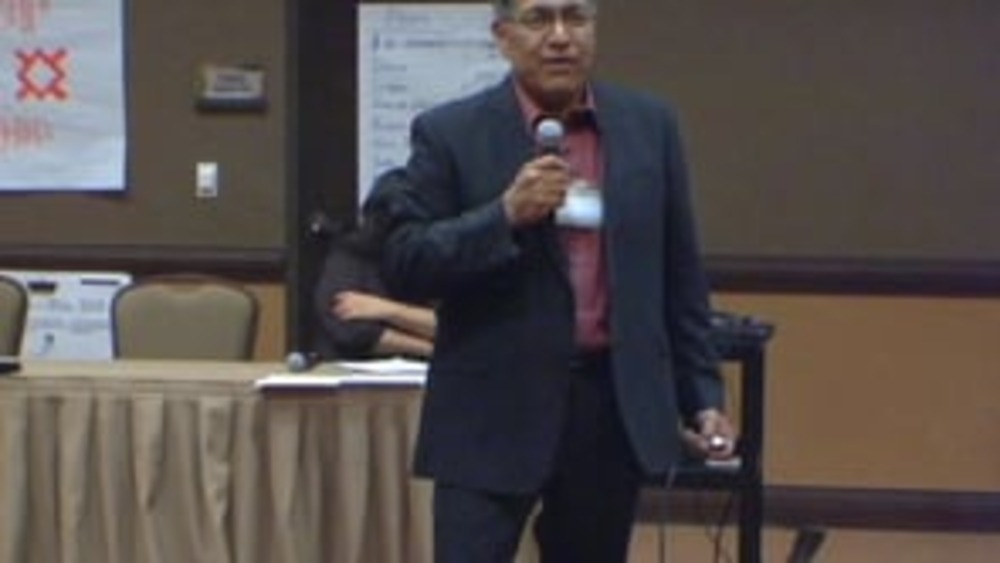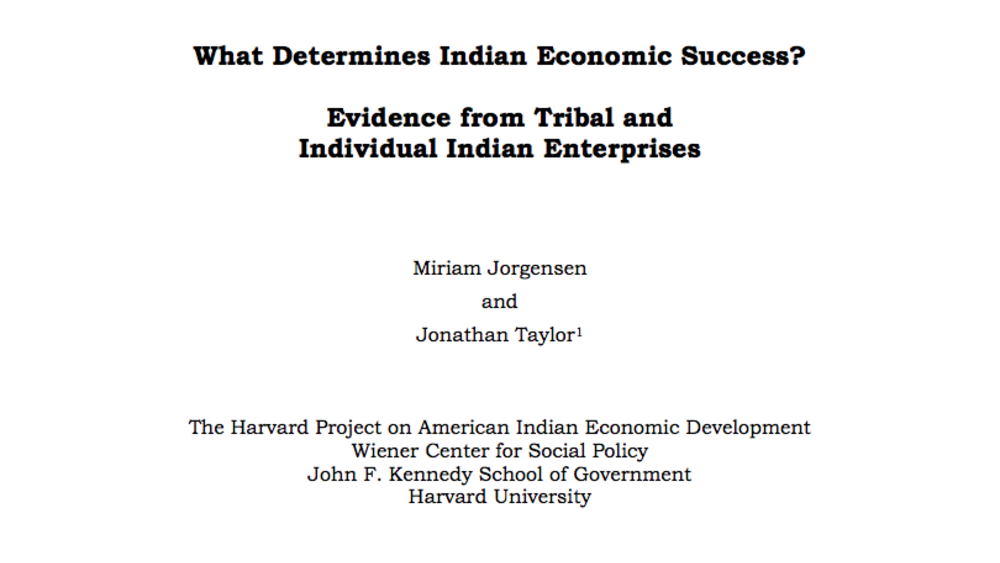Native leaders and scholars share their thoughts about how Native nations can effectively manage the relationship between their governments and the businesses they own and operate.
Additional Information
Grant, Kenneth. "Building and Sustaining Tribal Enterprises" (Episode 4). Native Nation Building television/radio series. Native Nations Institute for Leadership, Management, and Policy and the UA Channel, The University of Arizona. Tucson, Arizona. 2006. Television program.
Jorgensen, Miriam. Native Nations Institute for Leadership, Management, and Policy, University of Arizona. Spearfish, South Dakota. April 19, 2011. Interview.
Morgan, Lance. Native Nations Institute for Leadership, Management, and Policy, University of Arizona. Tucson, Arizona. January 14, 2008. Interview.
Pico, Anthony. Honoring Nations symposium. Harvard Project for American Indian Economic Development, Harvard University. Cambridge, Massachusetts. September 2004. Presentation.
Record, Ian. Native Nations Institute for Leadership, Management, and Policy, University of Arizona. Spearfish, South Dakota. April 19, 2011. Interview.
Smith, Jerry. "Building and Sustaining Nation-Owned Enterprises." Emerging Leaders seminar. Native Nations Institute for Leadership, Management, and Policy, University of Arizona. Tucson, Arizona. March 26, 2009. Presentation.
Taylor, Michael. Building and Sustaining Tribal Enterprises seminar. Native Nations Institute for Leadership, Management, and Policy, The University of Arizona. Tucson, Arizona. 29 March 2007. Presentation.
Transcript
Ian Record:
"Separated model, in many cases, it's a loaded term. It's saying, 'We're going to separate this stuff.' And it's really, 'How do you manage that relationship? How do you strike that balance to where, you know, the nation is ensuring that the business entity has the best chance of success and then the business entity in turn is ensuring that it's advancing the vision of the people and its priorities for the future?"
Anthony Pico:
"We have learned experience brings wisdom. The first rule is that businesses cannot compete successfully when the decisions are made according to tribal politics instead of business criteria. This doesn't mean that the tribe must abandon control, it means that the tribe must develop strategies and policies and execute oversight that guide the actions and decisions. The strategic question the Viejas council engages should not be, 'Who runs the mailroom?' but 'What kind of society are we trying to build?'"
Kenneth Grant:
"There's a real difficulty in separating the roles with government-owned or tribally owned enterprises, people wearing multiple hats at the same time. And so you're a citizen of the tribe and yet you're also a part owner of the enterprise. A council member is a, has governing responsibilities, is also an owner, is also a citizen. That collapsing of the distance between government and business often creates a lot of role confusion for tribes that is difficult to overcome."
Michael Taylor:
"Dividing the business operations from the politics of the tribal council is perhaps not a panacea, but it's necessary if the tribes are going to succeed with their development. And all the years that I've worked on reservations and I've worked in the tribal facility always, I've always worked directly for the tribe, the struggle has been how to figure out ways to deal with this problem. We need to develop our resources, we need to pay attention to taking those resources that we have and maximizing [them] for the benefit of our people and creating institutions that last, both governmental and business."
Miriam Jorgensen:
"You know, the challenge I think about the most, because I think it's the place that has the greatest fears raised for tribal council folks, for, you know, the political leadership, is the fear of just not knowing what's going on at that corporation. And that just means that there have to be mechanisms in that separated model for information flow, and a lot of times, initial documents that create corporations specify some of this information. It may say, you know, you have to have an annual report to us, and that annual report, you know, has to happen on such-and-such day, or the third council meeting of the year or whatever, but I think the most contemporary learning on this suggests that that's not really enough. What tribal councils need is some assurance that they're going to get information more frequently and probably a little bit more intimately. That doesn't mean that they've got the right to go in and ask the CEO of the corporation or the board of the corporation lots of questions every day all the time, but rather that the corporation has to have mechanisms that are both formal and informal for communicating adequately with tribal council to sort of say, 'Here's the stuff you need to know, and we'll give you more detailed information at our annual report time' or whatever. Different nations have handled this in different ways. I know that you've spoken with Lance Morgan, who is the one who told us what I think of as one of the best examples of this, is just offering the tribal council training for new councilors. Anytime somebody is newly elected that they get to learn about HoChunk, Inc. through a tour and an orientation. There are also tribes that require say quarterly reports that might be much shorter than say the annual reporting-in, but just to sort of update on here's where things are at. So whatever's going to work for that tribe that's not micromanagement and too much oversight, but actual good communication back that maintains the balance."
Lance Morgan:
"Well, managing a relationship between the business side and the political side is a very big deal. We've been doing it now for, I guess, almost 12-13 years. And when we started off, we had a formal set of rules. This is basically, the tribe would do this and the board would do this. And what's happened is that, as issues emerge, as we evolve as an entity, we continue to give more information. I mean everything's kind of slanted towards more sharing and more information rather than less. We still have to maintain certain differences, certain walls, you know. Things like keeping the tribe out of personnel issues and things like that -- just base, functional things that we have to do as a corporation. But in terms of the relationship, everything that we have done has gone towards more sharing and more information. And I think that as you do that, that's very helpful as long as you maintain the core differences, the core separations that allow you to continue to function independently."
Jerry Smith:
"The first lesson I learned is that maintenance of the separation of tribal governments and businesses is a very delicate balance. For example, tribal membership's demand for per capita could definitely affect you as a business. And, given the hands of people in a tribal governance role, they may have an agenda to get more money out of you. And from a business standpoint, we can only give what we can afford to give to the tribe. And so, political factors can come in and wipe you out. We don't go promote ourselves and sell ourselves as a service to anybody because, in my opinion, we're still learning how to do this, and if anybody tells you they're an expert at it, I'd like to meet them. I really would like to meet them. But what we continue to try to do is help when we're asked to help. And we've had tribes come to us and ask for help to do this, and the biggest challenge that I've run into in trying to help those tribes is the issue of control, and government does not want to give up that control, especially in tribes that already have ongoing gaming operations. And so, they'll commit to the idea of doing it, but once they understand that they can't go in and fire the manager tomorrow or go in there and do the things they're used to doing, they don't like it. So, you have to manage that every day. I mean, it's something that I have to manage every day. The governor doesn't have an authority to come in and take any actions within the operations on a day-to-day basis, but everybody knows that when the governor shows up on any one of our properties, I need to know immediately and we have somebody there to make sure that he's seen, he's getting what he needs. So you've got to manage that. You have to recognize who the owner is. And so, again, that's a delicate balance."



